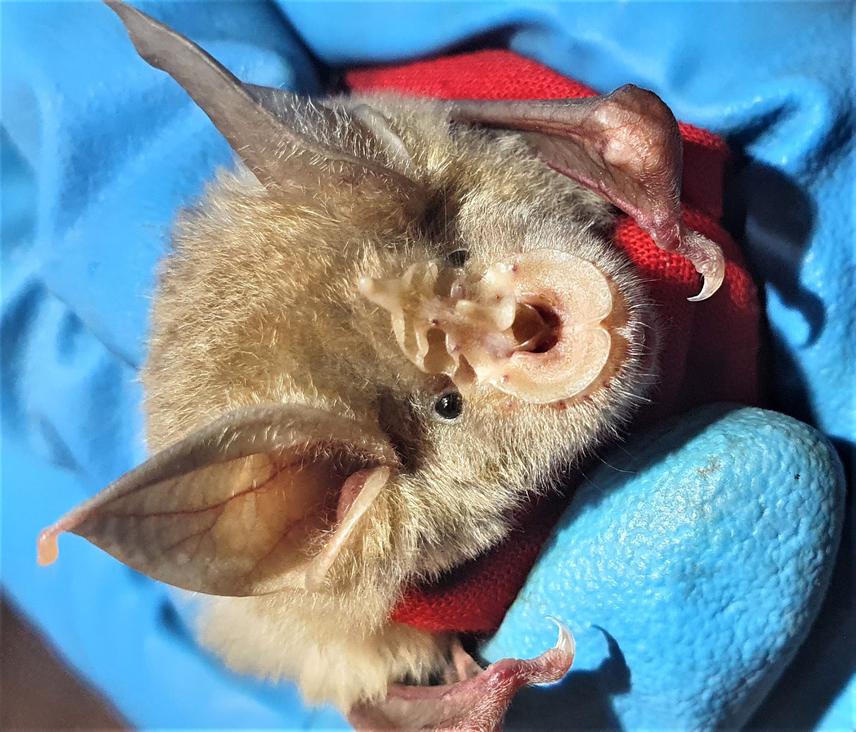Heliana Dundarova
Other projects
22 Feb 2018
Underground Habitats as a Unit for Conservation of Vulnerable Bat Communities in South-Western Kyrgyzstan
The life cycle of the cave-dwelling bats is constantly linked with the underground sites. The presence of karst in South Kazakhstan defines variety of caves which are suitable bat roosts. However, this region includes phosphates, uranium and colour metals deposits which are the main pressures on the biodiversity. This could negatively affect cave-dwelling bats, especially under persecution due to combination of ignorance and perceived risks of disease.

Male Greater horseshoe bat. © Heliana Dundarova.
The project will contribute for evaluation of bat communities, population sizes, their health status using ectoparasite diversity as s flag, survey of the important underground sites, current condition, potential threats and restoration needs in protected (Aksu-Zhabagly Nature Reserve, Sayram-Ugam National Park) and non-protected areas (Karatau Mountains) in Southern Kazakhstan. Collected data will contribute to filling the gaps about the inhabited and vulnerable bat underground sites on a local level and update the conservation status of family Rhinolophidae in the Red Data Book of Kazakhstan.
The team for the field research will be assembled by local stakeholders (NGO volunteers, students and cavers). We will present step by step the benefits for the establishment of a working bat group in South Kazakhstan. Such group will be a credible step to justified strategy for bat protection and a prerequisite for the long-term bat conservation in Central Asia.
This will be the second bat conservation project for Central Asia and is essential for future deeper conservation activities focused on bats and their habitats in the region.
Header: Male Lesser mouse-eared bat in Stalaktitovaya cave. © Georgi Shakula.